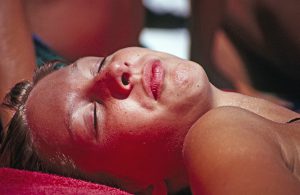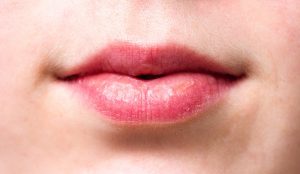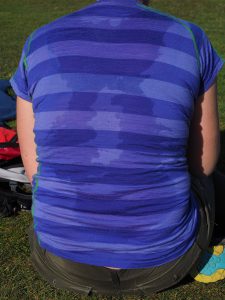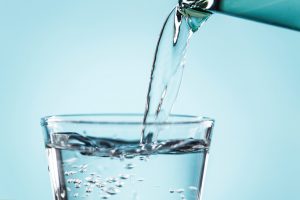Summer is here and everyone is beginning to loosen up and get ready for summer fun. But just because summer is here doesn’t mean you can be totally carefree! We don’t want to be a buzzkill, but, while there is tons of enjoyment to be had in the summer, there are also plenty of health risks out there that you need to be prepared for, especially as the milder days of June give way to the more scorching months ahead. But never fear! Knowledge is power, and being aware of the risks out there – and how to avoid or deal with them – will mean that you’re ready to have some serious and healthy fun this summer.
Sunburn and Sun Damage
Maybe you already know some of the risks of sunburn: it’s painful and itchy, can cause sun damage that ages your skin with wrinkles, fine lines and sun spots, and can lead to more serious issues like melanoma and other skin cancers. The last risk is real and very worrying: your risk for melanoma doubles if you’ve had just five sunburns in your life.
Unfortunately, we don’t seem to be changing our behavior when it comes to sun exposure: in fact, the percentage of adults nationwide who got at least one sunburn during the previous year has risen from 31.8% to 33.7% in the last few decades. The solution is simple, even if it means a few extra minutes of getting ready before heading outside: make putting on sunscreen that protects against UVB and UVA rays (preferably a healthier, reef-safe choice) a daily habit, whatever the weather. And if you’re going to be outside for a longer period of time, remember to reapply often (as least every 2 hours depending on what you’re doing). In addition, consider wearing a wide-brimmed hat and/or clothes that cover as much as possible and limiting your time in the blistering midday sun. What to do if you do end up with a nasty sunburn?
What to do if you do end up with a nasty sunburn?
- Drink plenty of water
- Soak the burn in cool water, or apply a cool, damp cloth
- Take an over-the-counter pain reliever
- Treat it with an anti-itch cream or spray
- Apply aloe vera gel or cream, or an antibiotic cream for more severe burns
Eye Damage
Your skin isn’t the only part of your body that can take a hit during the sunny summer months: your eyes can easily become damaged by the bright sunlight. Be sure to wear sunglasses that specifically protect against UV rays, otherwise you could actually be doing more harm than good. Sunglasses that don’t block UV rays open up your pupils by making things darker, which actually lets in more UV rays, not less. Hey, take this as an excuse to pick up some stylish shades – just be sure your sunglasses filter out 100% of UV light!
Dehydration
Feeling thirsty? Don’t ignore that feeling in the scorching summer months; in fact, don’t wait until you’re feeling parched to start rehydrating, because it could be too late! Dehydration can be a real problem in the summer, especially if you’re enjoying some summer cocktails, engaging in outdoor sports, or even just lounging outside for prolonged periods in the hot sun. Signs of dehydration to look out for include:

- Feeling thirsty
- Dry mouth, lips, and/or eyes
- Dark yellow, strong-smelling pee
- Feeling tired
- Dizziness or lightheadedness
- Muscle cramps
- As dehydration becomes more severe, your eyes might stop making tears, you might stop sweating, and you might feel nauseous and vomit
The solution is to simply drink more water or other fluids, preferable those without any sugar in them. If you plan on lounging or sweating outside, aim to drink 16 ounces of water every hour, and try to keep strenuous activity to a minimum between the hours of 12pm and 3pm, when the sun is the strongest.
Rashes
All of that lush greenery around during summer is beautiful, but some of it can spell major trouble for your skin. Plants like poison ivy, poison oak, and poison sumac can cause terrible, itchy rashes, so if you’re the outdoorsy type and are planning on doing things like camping or hiking, make sure you know what all of these plants look like. Knowledge is your first defense; your next defense should be to shower thoroughly after yard work, hiking, camping, or doing other outdoor activities. Finally, always keep a bottle of calamine lotion on hand to combat any itchy rashes that pop up!
Rashes caused by plant life aren’t the only summer skin woe: all that summer sweat could land you with a case of heat rash, or prickly heat. This red, bumpy rash is caused by blocked sweat ducts, and can become dry, itchy, irritated and downright uncomfortable. To prevent heat rash:
- Wear loose clothing made from breathable fabrics like cotton
- Avoid exercising in excessively hot, humid conditions
- Take time out to relax in some air conditioning, or in front of a fan
- Shower often to prevent sweat glands from becoming clogged
Food Poisoning
Ants aren’t the only thing that can ruin a lovely summer picnic – food that’s been improperly handled could lead to a nasty bout of food poisoning. Each year, 1 in 6 Americans (48 million people) contract food poisoning, with the illness peaking in the summer months. According to Ryan Stanton, MD, an emergency room physician in Kentucky, “Anything that has mayonnaise, dairy, or eggs in it and any meat products can develop some pretty nasty bacteria after only a couple of hours unrefrigerated,” says Stanton. “Every summer we’ll have five or six people coming in from the same reunion or family picnic with food poisoning symptoms.”
To keep the tummy troubles away:
- Chill out – If you’re bringing along anything that needs to be refrigerated, pack it at the last minute, and once you head out, keep it in a cooler with plenty of ice.
- Pack it properly – Not only should perishable foods be packed with ice, but they should also be packed in order of when you’re going to eat them – use the “last in, first out” rule! In addition, if you’re bringing along any meats, make sure to wrap them securely so that the juices don’t contaminate other foods.
- Take the temperature – If you’re grilling at your picnic, make sure you bring along a meat thermometer to check that those foods that look perfectly grilled are actually cooked all the way through. Remember, steaks should be cooked to a minimum of 145 degrees F, ground beef to 160 and poultry to 165.
And if you do eat the dreaded spoiled deviled egg? As long as your symptoms are mild and you feel better after a day or two, you can treat your food poisoning at home with a bland diet, plenty of fluids, and rest. If symptoms are more severe, or last for several days (or more than 24 hours for kids), see your doctor.
Insect Bites
The warm, lazy days of summer don’t just bring out hordes of people – they also bring out all the insects. Coming in contact with them can be annoying, painful, or downright dangerous. For example, for some people, bee stings hurt, and for others (3 in every 100 people), they can cause serious allergic reactions. Other insects, such as mosquitoes, fleas, and ticks can carry diseases like West Nile virus, Dengue fever, and Lyme disease. In fact, according to the CDC, disease cases from ticks, mosquitoes, and fleas more than tripled in the U.S. from 2004 to 2016. To prevent stings and bites:
- Apply insect repellent before heading out
- Cover up as much as possible
- Avoid heavy perfumes and scents, which attract stinging insects
- Wear light colored clothing, as dark-colored and floral-patterned clothing attracts stinging insects. In addition, wearing light colored clothing makes it easier to see ticks before they latch on.
- Tuck in clothing to make it more difficult for insects like ticks to bite
- Check thoroughly for ticks after spending time outdoors – the longer the tick is attached, the greater the risk of disease.
Heatstroke and Heat Exhaustion

Did you know that, according to the CDC, extreme heat sends an average of 65,000 Americans to emergency rooms every year? Heat exhaustion and heatstroke (the more severe and dangerous of the two) can occur when your body is unable to cool itself down after prolonged exposure to the heat, such as when you’re working or exercising outdoors. As with dehydration prevention, to avoid heat exhaustion, you should always take breaks in the shade or AC and limit outdoor exercise at the hottest times of the day. It’s also important to know the signs:
- A body temperature of 103 degrees F or higher
- Hot, red, dry, or damp skin
- A fast pulse
- Headache, dizziness, or confusion
- Loss of consciousness
- Heavy sweating
- Cold, pale, clammy skin
- Nausea or vomiting
- Muscle cramps
Now that it’s finally summer, we hope you’ll get out there and enjoy yourselves! Barbecues, roaring campfires, days by the pool – however you do it, make the most of it, but do it safely!


